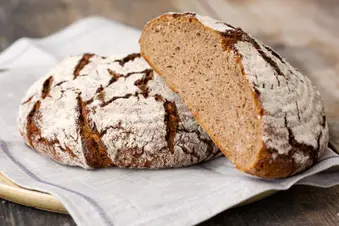
Your body is full of both good and bad bacteria. Probiotics are an example of beneficial bacteria, as they keep your gut healthy and functioning properly.
Probiotics are part of your microbiome, which is a community of microbes that work together to keep your body healthy. For a microbe to be called a probiotic, it has to have the following characteristics:
- Can be isolated from a human
- Survives in your intestine after being eaten
- Benefits you in proven ways
- Is safely consumed
Common types of probiotics include:
- Lactobacillus: This is a common probiotic found in fermented foods, such as yogurt.
- Bifidobacterium: This probiotic is found in some dairy products and helps with the symptoms of irritable bowel syndrome.
- Saccharomyces boulardii: This is a type of yeast found in many probiotics. You can find these probiotics and more in supplements and select foods.
Why You Need Probiotics
You need probiotics to keep your body balanced.
When you get sick, good bacteria fight off the increased amount of bad bacteria to keep your levels as close to neutral as possible.
One of the most significant benefits of probiotics is that they ease symptoms of digestive issues, such as:
- Irritable bowel syndrome
- Inflammatory bowel disease
- Infectious diarrhea
- Antibiotic-related diarrhea
Many people experience other health benefits of probiotics, such as eczema relief, oral health, and prevention of allergies or the common cold. Although there is some research to support these uses, the data is not conclusive.
Recent studies have also found that having necessary probiotics is associated with a reduction in depression. Additional research is needed to understand if probiotics can be used as a preventative strategy for depression. Studies have also looked at the effects of probiotics on alleviating anxiety. However, studies have been inconclusive and additional research is needed.
Foods With Probiotics
Many food products such as yogurt, sauerkraut, and miso contain probiotics. They are often advertised as containing live and active cultures such as bifidobacteria and lactobacilli. On the label of such foods, you should be able to find the full probiotic name.
There isn't a recommended daily allowance for probiotics, but the general guideline is to incorporate more probiotic-rich foods into your diet.
Here are seven foods high in probiotics:
1. Yogurt
Yogurt is made by culturing milk with bacteria that produce lactic acid, such as Lactobacillus bulgaricus and Streptococcus thermophilus, although more strains can also be added. If yogurt is heat-treated, it loses its probiotic contents.
2. Buttermilk
Several different fermented dairy products are referred to as buttermilk, but the only kind that contains live probiotic cultures is the liquid that remains after butter is produced. Many types of buttermilk you would find in the grocery store do not actually contain live probiotics, so make sure to read the label closely.
5. Cottage Cheese
Because cottage cheese is not aged or heated, it maintains a high amount of probiotics. Other cheeses that often contain probiotics include:
- Swiss
- Provolone
- Gouda
- Cheddar
- Edam
- Gruyère
6. Tempeh
Tempeh is a soy-based food that provides numerous health benefits. In addition to probiotics, tempeh provides an excellent source of fiber, protein, and iron.
7. Sauerkraut
Sauerkraut is fermented cabbage often served with sausage or on Reuben sandwiches. This traditional German food is a great source of fiber, B vitamins, iron, manganese, and more. Unpasteurized sauerkraut is the kind that contains all of these nutrients as well as healthy probiotics.
8. Miso Soup
Miso is a paste made by fermenting soybeans with salt and several kinds of good bacteria. The three kinds of miso are white, yellow, and red. They can be added to broth and other ingredients to make a healthy probiotic-rich soup.
Show Sources
Photo Credit: Judith Haeusler/Getty Images
SOURCES:
Academy of Nutrition and Dietetics: "Prebiotics and Probiotics: Creating a Healthier You.”
BodyNutrition: "The best probiotic foods everyone should eat."
California Dairy Research Foundation: "Are all yogurts 'probiotic yogurts'?"
Cleveland Clinic: "Probiotics."
Depression and Anxiety: “Efficacy of probiotics on anxiety—A meta-analysis of randomized controlled trials.”
Harvard Men's Health Watch: "The growing role of probiotics."
International Probiotics Association: "Put Miso in Your 2020 Menus."
International Probiotics Association: “Tempeh Tempts with Benefits.”
Nutrients: “Effect of Probiotics on Depression: A Systematic Review and Meta-Analysis of Randomized Controlled Trials.”